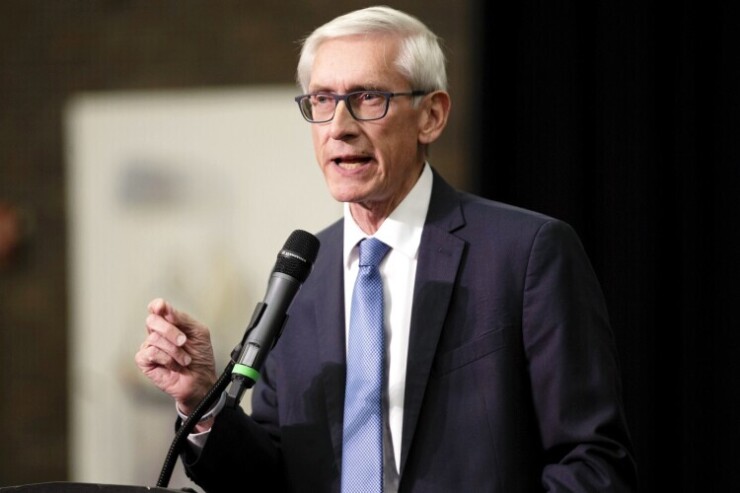Wisconsin ended fiscal 2023 on June 30 with record-high balances of $7.07 billion for its budget and $1.8 billion in its rainy day fund, the state announced Monday.
General purpose revenue tax collections totaled almost $21 billion, up 2.1% from fiscal 2022, which ended with a nearly $4.3 billion budget balance, according to a 2023 annual fiscal report by the Wisconsin Department of Administration. General sales and use taxes, which totaled $7.45 billion, had the biggest gain at 6.8%, while the individual income tax generated $9.4 billion for a 2.2% increase.
“We began the most recent biennium in the best fiscal position in our state’s 175-year statehood, and today, we’re in an even better position than we were a year ago because we’ve worked hard to be prudent with taxpayer dollars while making smart, strategic investments to maintain our state’s economic momentum,” Democratic Gov. Tony Evers said in a statement.
Bloomberg News
The budget balance is $196.3 million higher than previously budgeted, DOA Secretary Kathy Blumenfeld said in the statement.
The Republican-controlled legislature passed a $99 billion budget for the fiscal 2024-25 biennium that began July 1. It included a $2.3 billion capital program that relies on $1.2 billion of state cash, along with a mix of new and existing bonding authority and federal funds.
The spending plan also earmarked $400 million in cash to pay down the state’s remaining tobacco settlement bonds from a 2009 issue that carried an annual appropriation pledge.
In light of Wisconsin’s “historic economic position,” Evers urged lawmakers to take up his comprehensive workforce plan to invest in affordable, accessible child care, expand paid family leave, and provide workforce training and support for high-need sectors, including healthcare and education.
“While we’ll continue to save wherever we can and stay well within our means, we also have a duty to invest in needs that have long been neglected—and that includes finally addressing our state’s generational workforce challenges and preventing the looming child care crisis that will only make our workforce problems worse,” Evers said.
